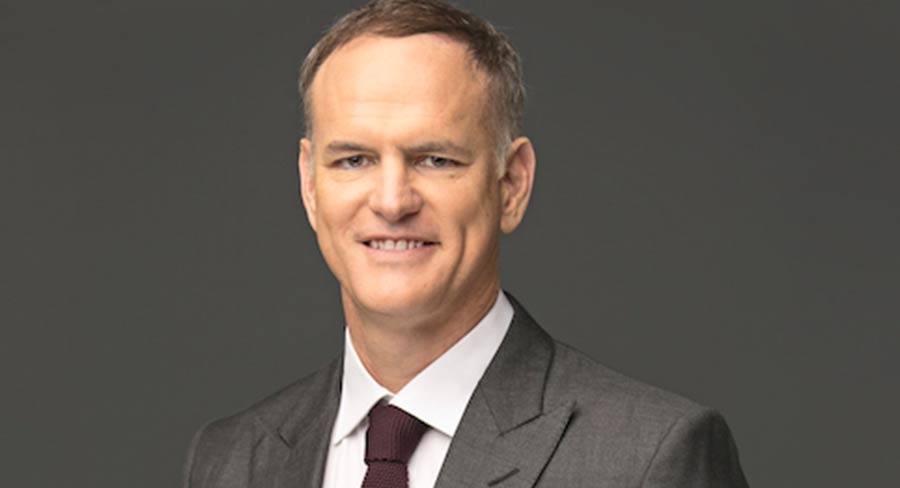Michael Miller, News Corp Australasia executive chairman, commented:
“We are encouraged the Government is taking action on a number of fronts to deal with the power imbalances the digital platforms hold over media businesses.
“Most of these initial steps are aligned with where the world is heading but more reforms are needed to protect consumers and ensure a vibrant and viable media industry.
“The new unit within the ACCC to oversee digital platforms and an inquiry into the murky waters of ad tech are welcomed – they are important and necessary.
“However, the Government’s approach of a voluntary code of conduct to oversee commercial arrangements as a first step appears out-of-kilter with leaders of other jurisdictions who have advocated firmer action.”
Network 10’s chief executive officer Paul Anderson:
“It’s great the Government is making a serious attempt to address the deep-rooted dominance of the online tech and streaming giants.
“On free to air content regulation, the issues are clear and the answers are already there. We just have to get cracking and get it done.”
Seven West Media welcomed the Morrison Government’s response to the ACCC’s Digital Platforms Inquiry Final Report.
James Warburton, Seven West Media Managing Director and Chief Executive Officer, said: “We welcome today’s response from the Government to the ACCC’s Digital Platforms Inquiry Final Report, supports the majority of the ACCC’s recommendations.
“Seven is particularly pleased by the announced process to swiftly address out of date Australian content requirements that are currently holding back Australian media businesses. We encourage the Government to move quickly to provide certainty to industry and put in place a new framework for content that better reflects commercial realities and the changed viewing patterns of Australian audiences.
“The urgent need for regulatory equality between foreign Digital Platforms and Australian companies has been recognised by the Government. We see this as a real turning point, as for too long legislation has lagged well behind technological evolution, disadvantaging Australian companies and providing foreign Digital Platforms with a free ride.
“We are disappointed that the Government is not pursuing a mandatory take down scheme for copyright infringing material as recommended by the ACCC. But it is pleasing that the Government has committed to reviewing copyright enforcement mechanisms during 2020.”
Commercial Radio Australia welcomed the Government’s response to the ACCC’s Digital Platforms Inquiry.
Chief executive officer Joan Warner said the industry looked forward to a speedy implementation of the reforms.
“The Government has responded within their stated time frame, which is an encouraging sign of how seriously they are taking these issues and their intent to bring about change.
“The industry is very pleased there will be concrete moves towards harmonisation of media regulation, as commercial radio remains one of the most overregulated platforms in the media and communications sector. We hope the ‘phased’ approach does not mean we have to wait years for effective change nor will have to go through another round of inquiries and submission writing.
“We are supportive of the development of voluntary codes to address the power imbalance. We look forward to working with the ACCC and other stakeholders to develop a practical and workable code.
“We also note the Government has specifically stated it will review Australian and children’s content requirements for free-to-air television services. We assume that the heavy local content requirements and associated compliance burden on local radio stations will also be part of any such review in the light of the Government’s stated wish to have a more harmonious and fair media regulation framework that can be applied across digital and traditional media.”
The commercial radio industry believes the review of advertising restrictions is also timely.
The MEAA said the federal government has missed an opportunity to deal with unregulated behemoths, Google and Facebook.
The Media, Entertainment & Arts Alliance said the inadequate response to the Australian Competition and Consumer Commission’s extensive and considered two year review into these digital platforms’ impact on the Australian community means proper regulation and accountability of these giants will not occur in the foreseeable future.
The ACCC’s world-first, meticulous review provided masses of evidence about the negative impact major digital companies have had on consumers, communities and market rivals.
MEAA chief executive Paul Murphy said it was perverse that a major inquiry directed at reining in dominant digital companies has resulted in them receiving a virtual clean bill of health.
“Australia has missed a golden opportunity to create rules that are fair to all.”
Setting up ‘special units’ to monitor the already known impact of major digital platforms will fail to establish a level playing field for all news carrying bodies where all play by the same rules. This will remain a pipe dream.
Voluntary Codes of Conduct are a proven failure in all market sectors. To propose voluntary codes to deal with fake news, growing internet manipulation and to ‘address bargaining power imbalances’ will not achieve any tangible outcomes.
Free TV Australia welcomed the Government’s commitment to adopt the key recommendations from the Australian Competition and Consumer Commission’s (ACCC) Digital Platforms Inquiry Final Report.
Free TV Chief Executive Officer Bridget Fair said: “Australia’s media regulations are crying out for urgent modernisation. The roadmap today outlined by the Government sets a clear timetable for that to occur.
“It is pleasing that the Government has recognised that action is needed to address critical imbalances in the regulatory framework and the competitive position of Australian media companies.
“For far too long, Free TV broadcasters have been operating under a regulatory framework developed last century, while trying to compete against unregulated digital platforms for advertising revenue and audience attention.”
